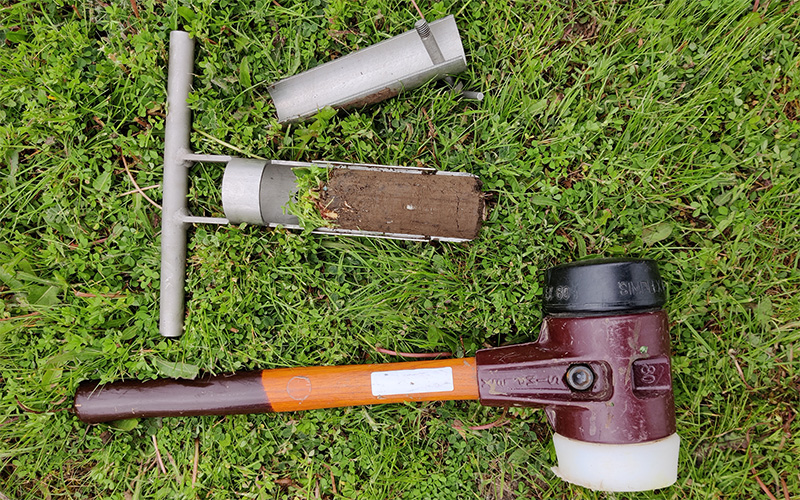F1 Internship
Lecturers: Ingolf Steffan-Dewenter, Jochen Krauß, Andrea Holzschuh, Thomas Schmitt, Sarah Redlich, Kim Lea Holzman
Aim: The students will expand their knowledge on ecological theories and current research issues in Animal Ecology. They will be qualified to design, perform, statistically analyze, and interpret scientific research. They will be familiar with animal ecological methods and possible sources of error in data interpretation. They will deepen their knowledge of Biology and Ecology of important functional taxa of arthropods. The acquired knowledge qualifies the students to perform scientific activities in the content of F2 internship or a master thesis.
Content
“Animal Ecology and Tropical Biology F1” consists of various courses each summer semester and winter semester. Three of them have to be chosen to complete the entire F1-module (5 week of courses). All courses are listed below.
Agroecology
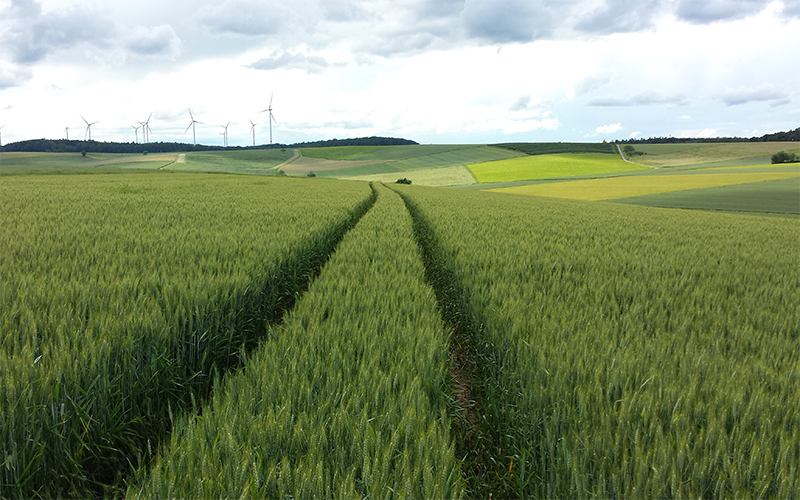
Students get to know a large variety of typical crops from the region around Würzburg and will record vascular plants, pollinators, pest insects and natural enemies comparing organic and conventional cereal fields. The insects will be identified with a focus on carabid beetles and the data will be statistically analysed. After the course a scientific protocol will be written individually by the students.
Tropical Ecology
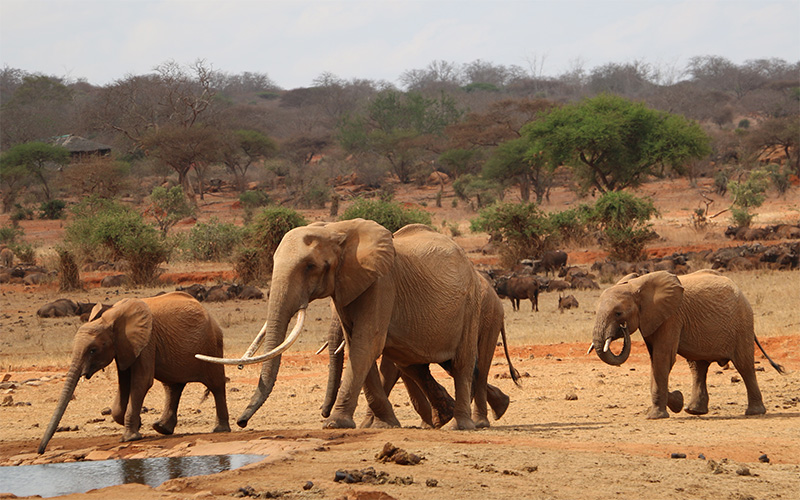
This practical course takes place in Kenya and contains excursions to African ecosystems like coral reefs and savanna national parks. It is only offered every second year and students have to cover essential part of costs themselves. In the tropical ecosystem, small projects with ecological or nature conservation related issues will be performed.
Chemical Ecology
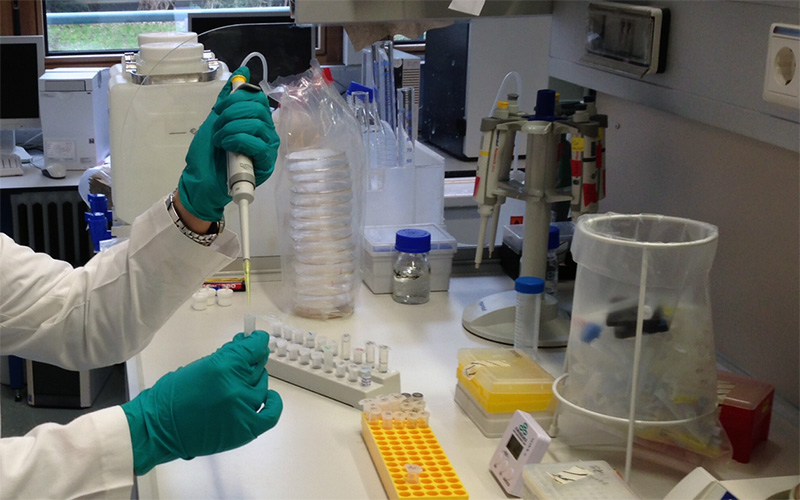
The students will be introduced in this practical course into the chemical interaction of organisms with their biotic and abiotic environment with a focus on evolutionary and ecological research questions. You will learn adequate biological methods to study these interactions as well as analytical methods to characterize the substances used by the organisms.
Ecology of Honey Bees and Wild Bees
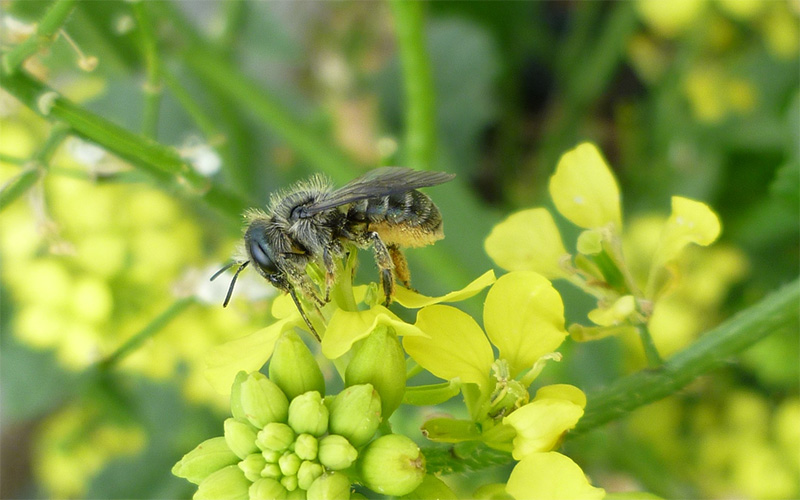
This practical course introduces students to the life of honeybees and wild bees; principles and techniques of beekeeping (colony management, breeding, diseases); resource use of honey bees and wild bees (bee dances, flower visiting, pollen analysis, foraging behavior, nesting aid); Taxonomy of wild bees, opponent of bees, wild bees in different habitats (excursion), honey bee excursion.
Statistics and R in Ecology and Conservation

This course teaches students the basics of statistics as well as the programming, graphics and statistics software R, with a special focus on methods and applications in and for ecology and conservation biology. In practical exercises, students learn the basics of R for data processing, analyses and graphics as well as standard methods of descriptive and analytical statistics.
Molecular Biodiversity Monitoring
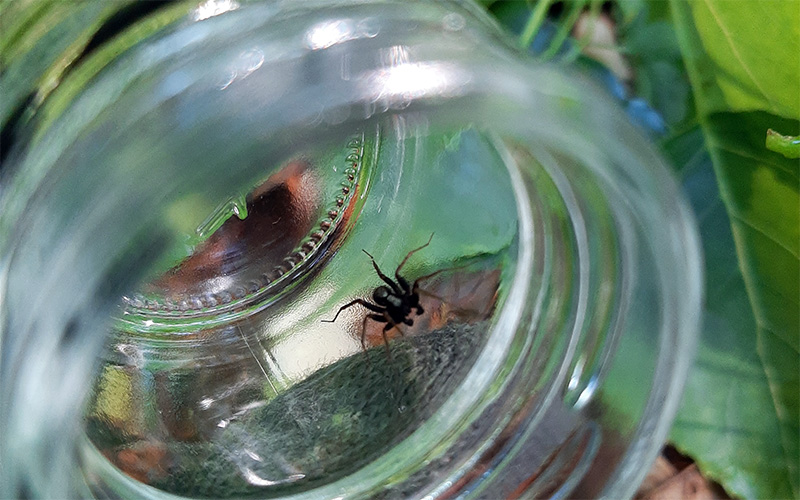
Molecular methods are being increasingly used in ecological research. This module uses practical experience to introduce students to molecular methods that are currently being applied in biodiversity monitoring and other ecological research questions. The students learn how to plan and implement current molecular methods, such as DNA metabarcoding.
Ecology and Taxonomy
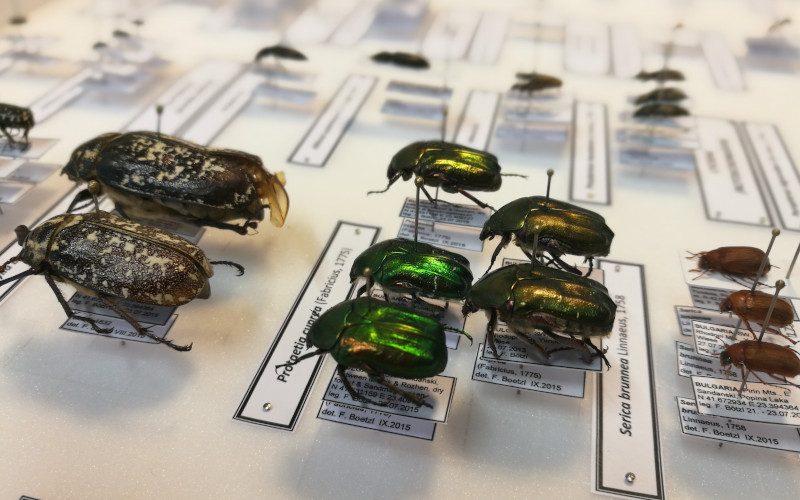
Students will learn to recognise and assign the traits of different arthropod groups, especially insects, and will be taught specialised morphological knowledge. They will carry out observation and recording of arthropods in their habitats, and perform experimental laboratory and field work for ecological or behavioural characterisation of the respective arthropod groups.
Forest Ecology

WS: at the Jungendwaldheim, Wessely Haus, in the oldest Nationalpark in Germany, the Bavarian Forest National Park. SS: at the Field Station Fabrikschleichach. Here we will focus on the role of invertebrates in forest ecosystems, in particularly the role of forest insects in conservation and pest management.
Global Change Biology
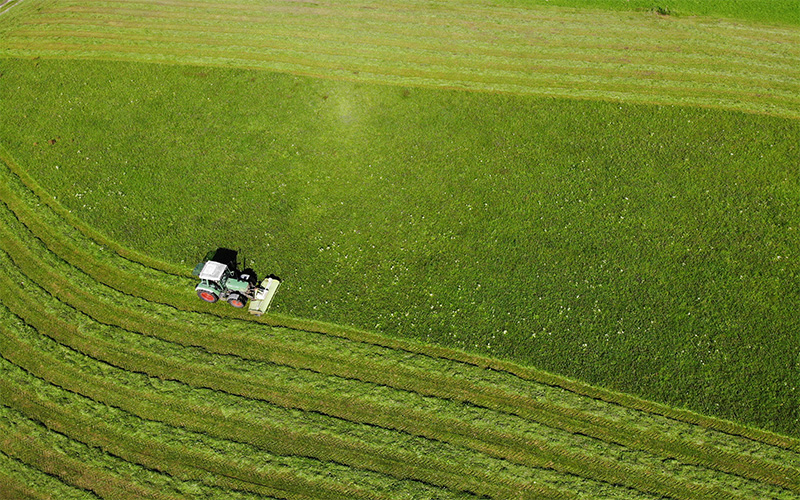
This course explores how major planetary challenges—biodiversity loss and climate change—are interconnected. Students examine the effects of global change on biological systems through literature, media, data analysis, field trips, and experiments. Key anthropogenic drivers such as climate change, land use, pollution, and invasive species are analyzed.
Macroecology
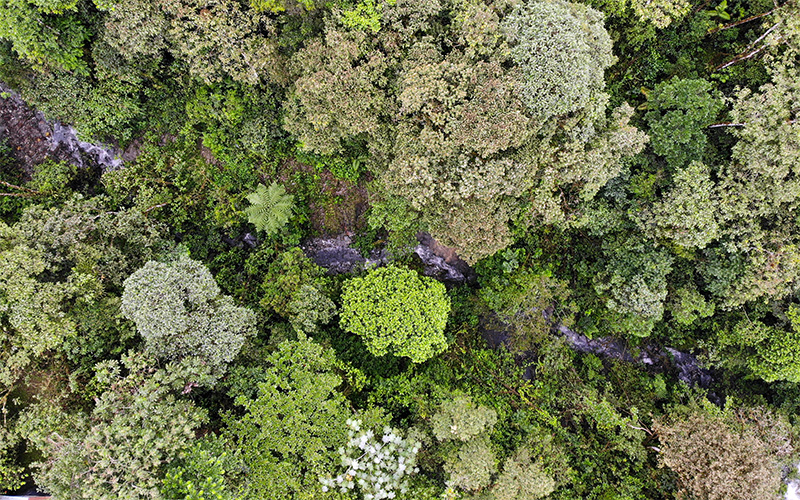
This course addresses key questions about large-scale biodiversity patterns, such as why species richness is higher in the tropics or how climate change affects species distributions. Students gain practical skills in macroecological research, analyzing biogeographic and ecological data to model species richness and distributions, and exploring conservation applications.
Modelling in Ecology

Computer simulations in ecology and evolution facilitate the identification of causal processes that link large-scale temporal and spatial patterns such as phenology or regional distribution of species communities with the behaviour of individuals. We use the programming language R to implement different simulation techniques and modelling methods.
Ecology in Alpine Environments

This practical block-course takes place in the German Alps, within Berchtesgaden National Park and focuses on ecological patterns and processes along elevational gradients. Through field excursions, students will explore a range of ecosystems from the colline zone to the subnival belt, gaining a comprehensive understanding of habitat characteristics and climatic variation across elevation.
Biodiversity, Ecosystem Services and Conservation

This course examines the links between biodiversity, ecosystem services, and conservation in the context of global environmental change. Students gain a solid grounding in ecological concepts, explore current research on biodiversity loss, and learn practical tools such as ecosystem service modelling, scenario development, and spatial analysis.



